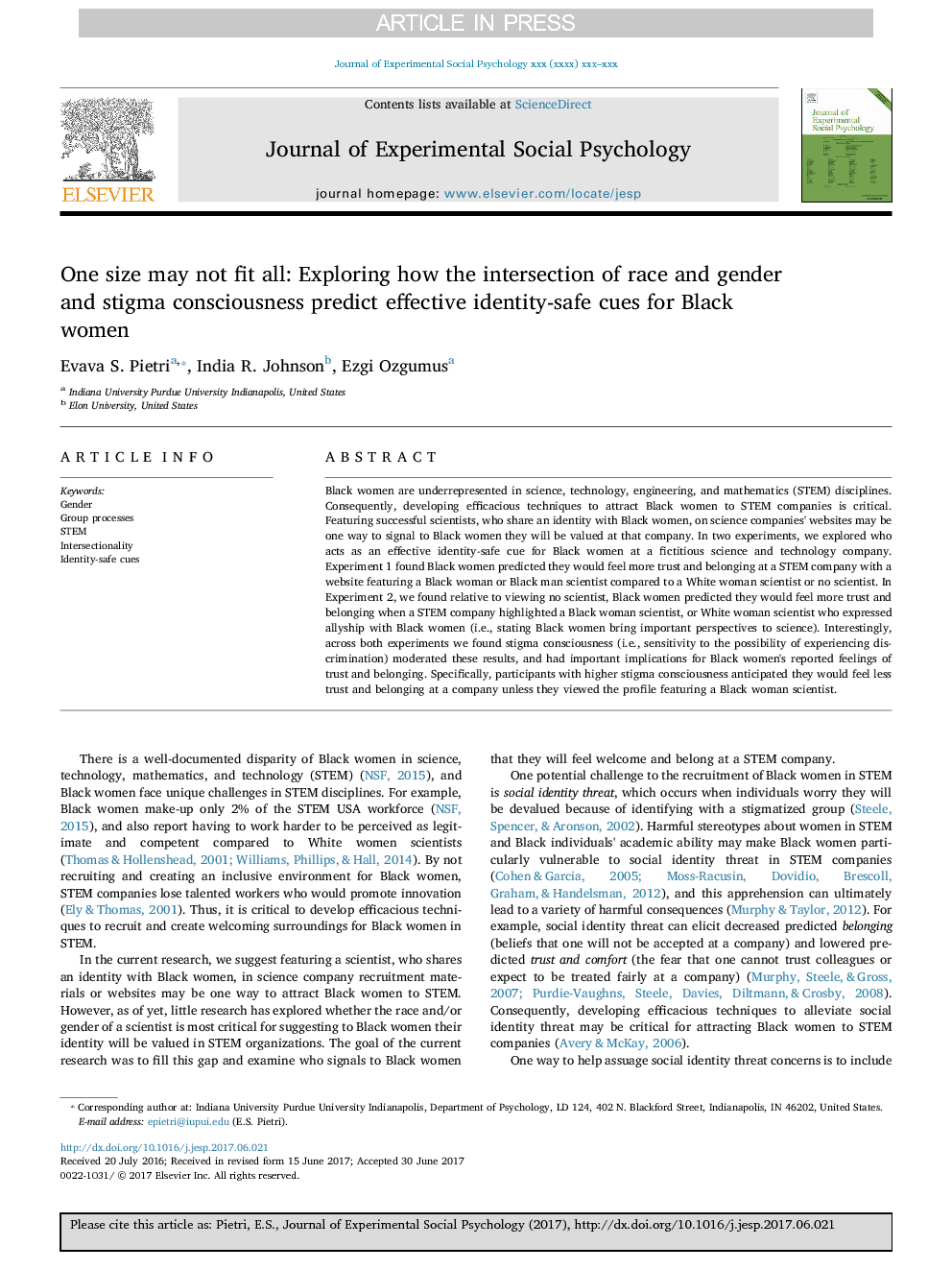ترجمه فارسی عنوان مقاله
یک اندازه ممکن است همه جا را نداشته باشد: بررسی اینکه چطور تقاطع نژاد و جنسیت و آگاهی از آزار و اذیت پیش بینی نشانه های موثر ایمن برای زنان سیاه پوست
عنوان انگلیسی
One size may not fit all: Exploring how the intersection of race and gender and stigma consciousness predict effective identity-safe cues for Black women
| کد مقاله | سال انتشار | تعداد صفحات مقاله انگلیسی |
|---|---|---|
| 130917 | 2018 | 16 صفحه PDF |
منبع

Publisher : Elsevier - Science Direct (الزویر - ساینس دایرکت)
Journal : Journal of Experimental Social Psychology, Volume 74, January 2018, Pages 291-306
ترجمه کلمات کلیدی
جنسیت، فرایندهای گروه، ساقه، بینش نشانه های امن هویت
کلمات کلیدی انگلیسی
Gender; Group processes; STEM; Intersectionality; Identity-safe cues;

